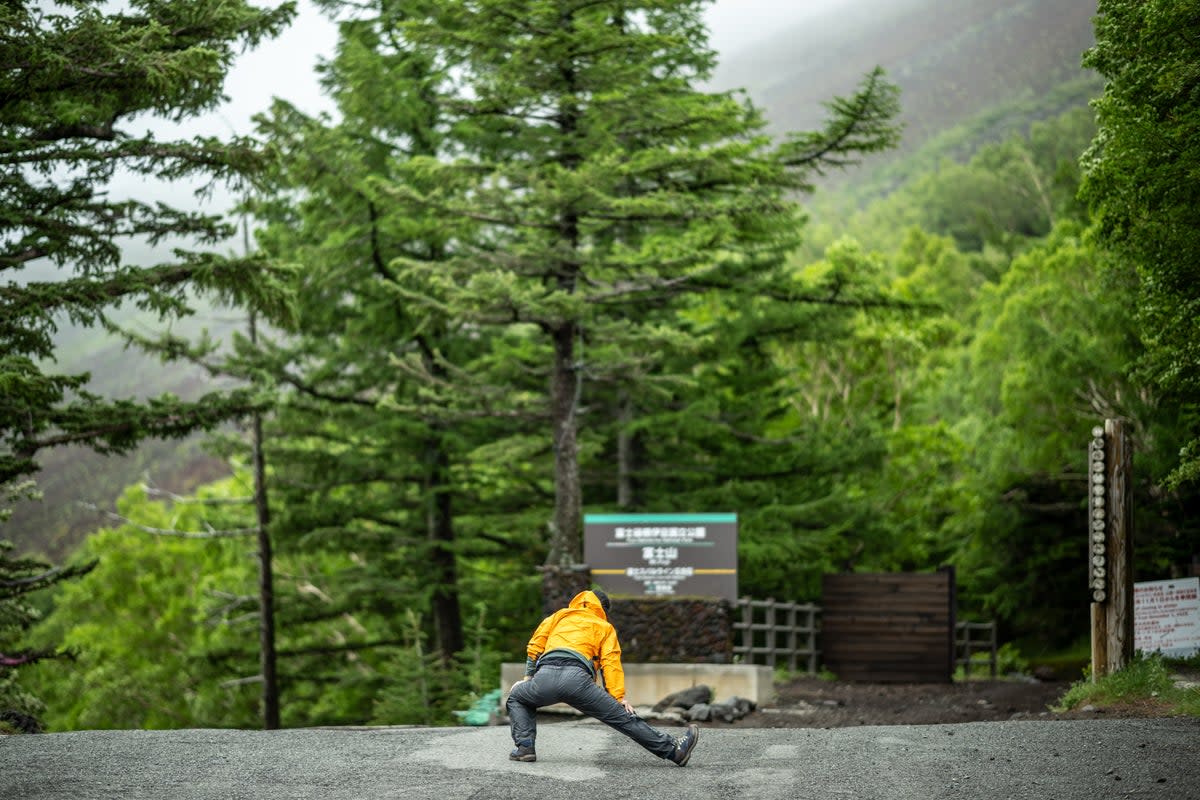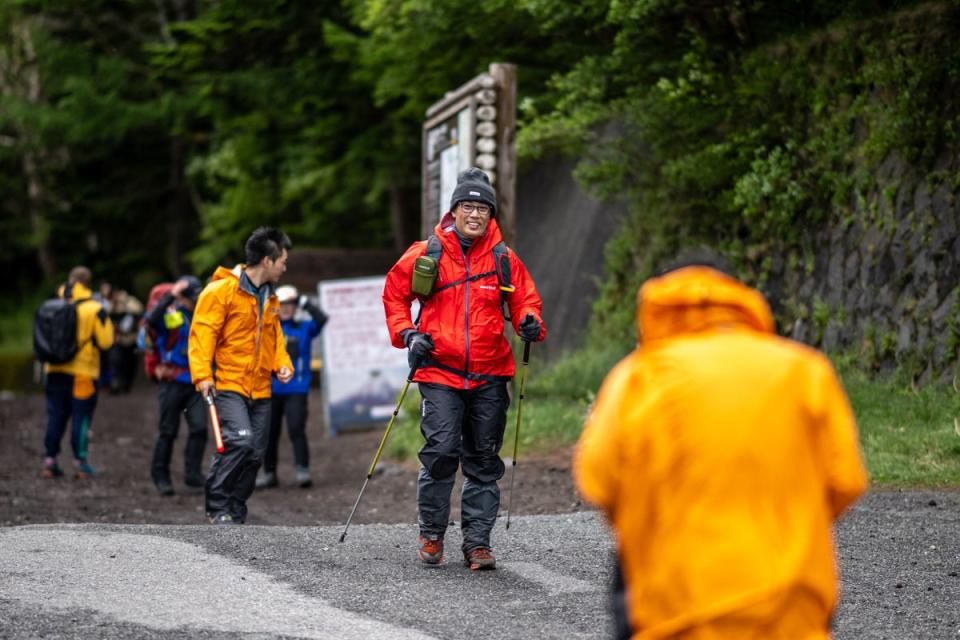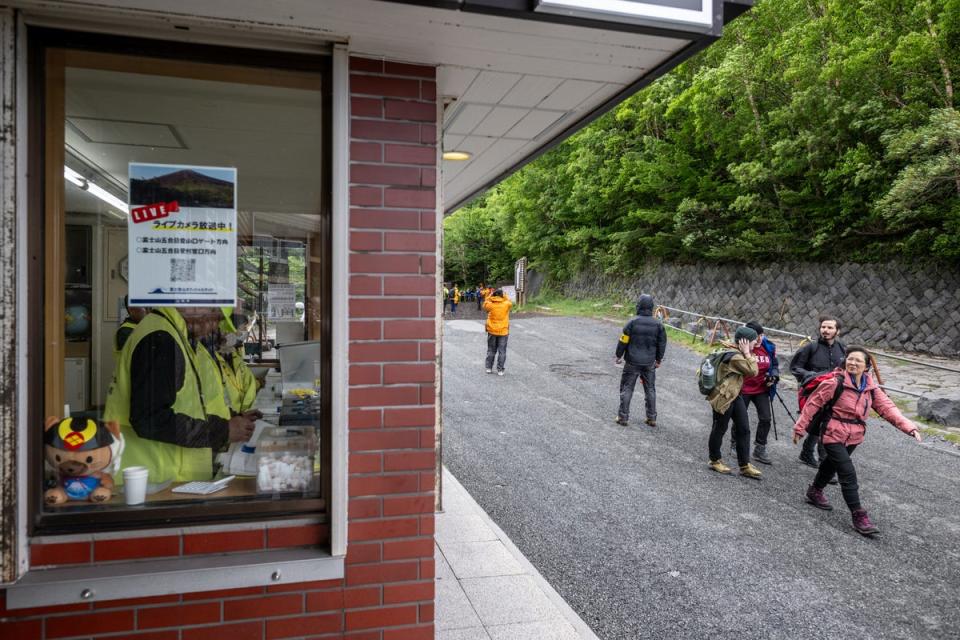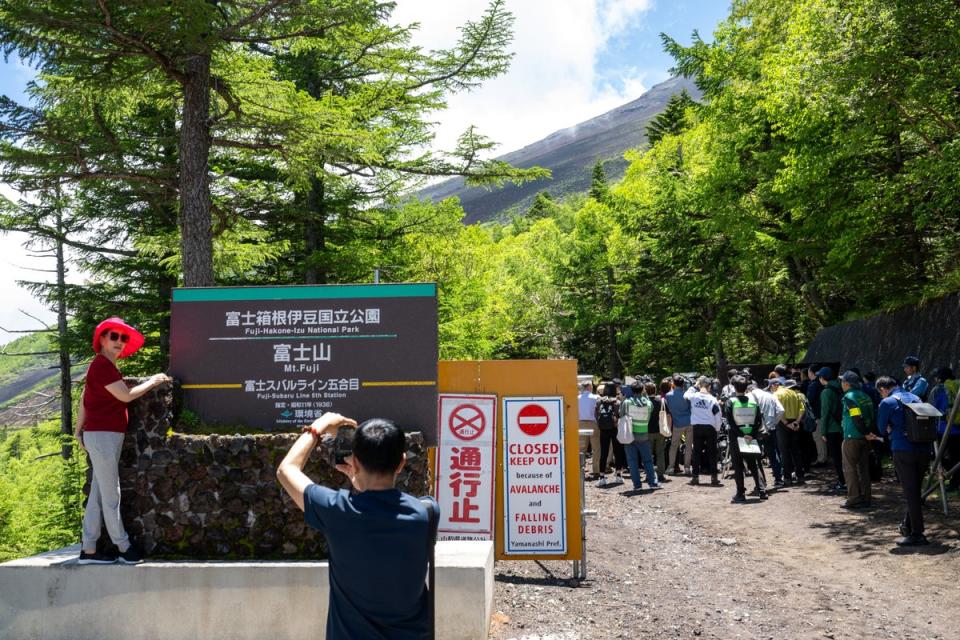Japan hikes fees and limits visitors to tackle overcrowding as Mount Fuji climbing season begins

Japan hiked the entry fees and restricted the number of visitors to tackle overcrowding on Mount Fuji as the climbing season kicked off on Monday.
The iconic mountain, Japan’s highest, has attracted record numbers of tourists in recent years, leading to complaints about overcrowding, pollution and unruly behaviour.
The number of climbers recovered to the pre-pandemic level last year, with about 300,000 going up, the environment ministry said.
This season, no more than 4,000 visitors will be allowed to climb the mountain each day and each will be charged a fee of 2,000 yen (£9.8), nearly twice the rate last year.
The new policy kicked in 90 minutes before sunrise on Monday as a newly installed gate opened halfway up the 3,776-metre-high peak.
"I think Mount Fuji will be very happy if everyone is more conscious about the environment and things like taking rubbish home with them," said Sachiko Kan, 61, one of about 1,200 hikers on the first day of the new season.
"This is not Disneyland," said Geoffrey Kula, an overseas climber from Boston. "Having some sort of access control system to limit the amount of potential chaos is good."

Climbers will be given wristbands to access the climbing trail from 3am to 4pm, authorities said.
But visitors staying in mountain huts closer to the peak won’t be subjected to the daily limit, they added.
Hikers typically start in the wee hours to make it to the top in time for sunrise.

Supporting the new measures, Yamanashi governor Kotaro Nagasaki said last month that they were necessary to prevent accidents and incidents of altitude sickness, particularly among foreign "bullet climbers", or those who race up to the top.
Japan should focus on attracting "higher spending visitors" over sheer numbers of people, he added.
The climbing season lasts until 10 September.
It can get extremely cold on the mountain even in summer and going up with proper climbing gear, boots and clothing is crucial. Trekkers are also at risk of altitude sickness if they ascend too quickly.
At least four people were found dead on Mount Fuji last week, prompting a warning against scaling it before the climbing season began.
Three people were found in a state of cardiac arrest inside a crater on the summit of the mountain while a fourth died after collapsing on the north side.

An active stratovolcano whose last eruption was in 1707, Mount Fuji has been a site of Shinto and Buddhist worship for centuries.
Mount Fuji attracts millions of people to Japan every year.
The town of Fujikawaguchiko in Yamanashi recently erected a large black screen along a pavement to block a popular view of Mount Fuji to discourage photo-taking crowds.

 Yahoo News
Yahoo News 
